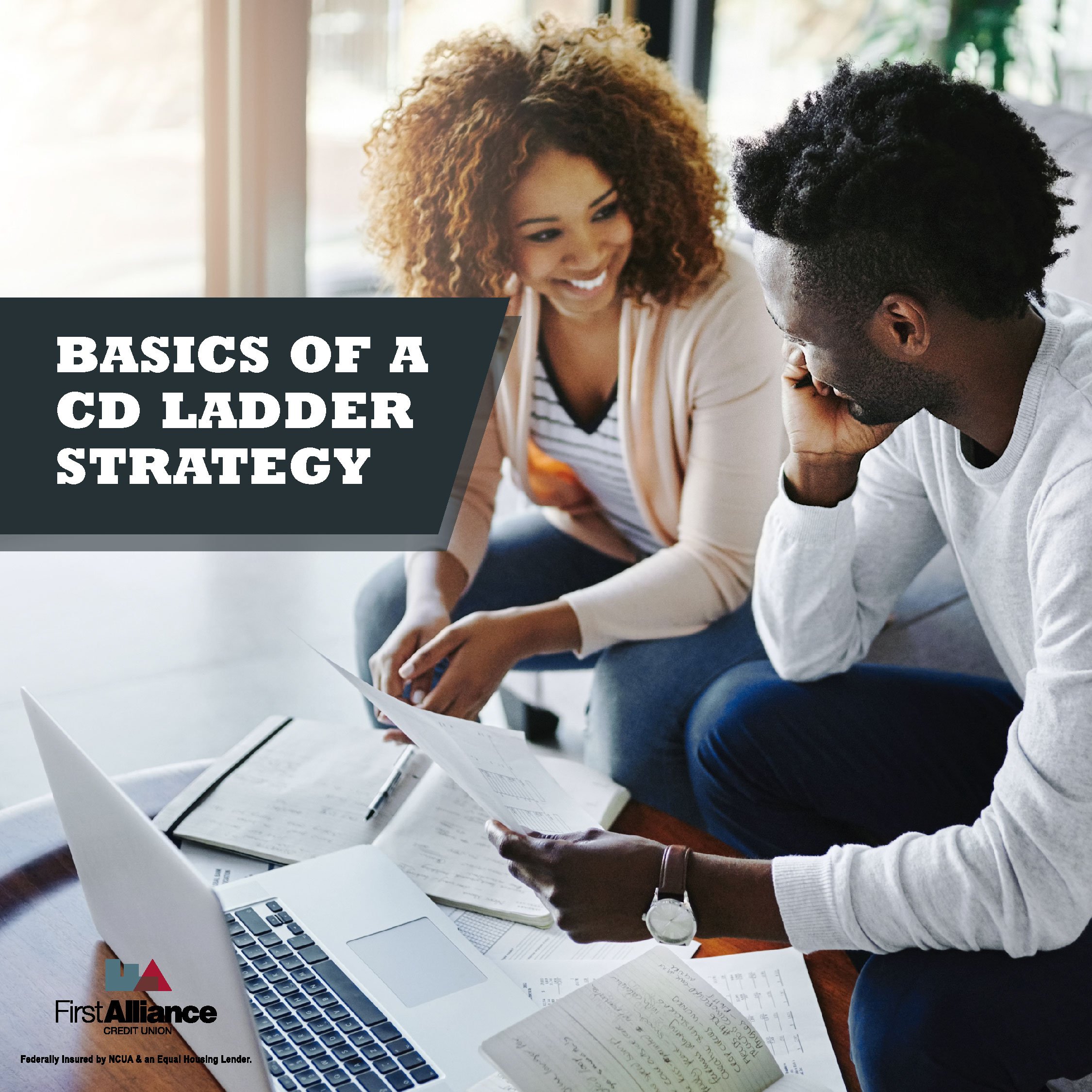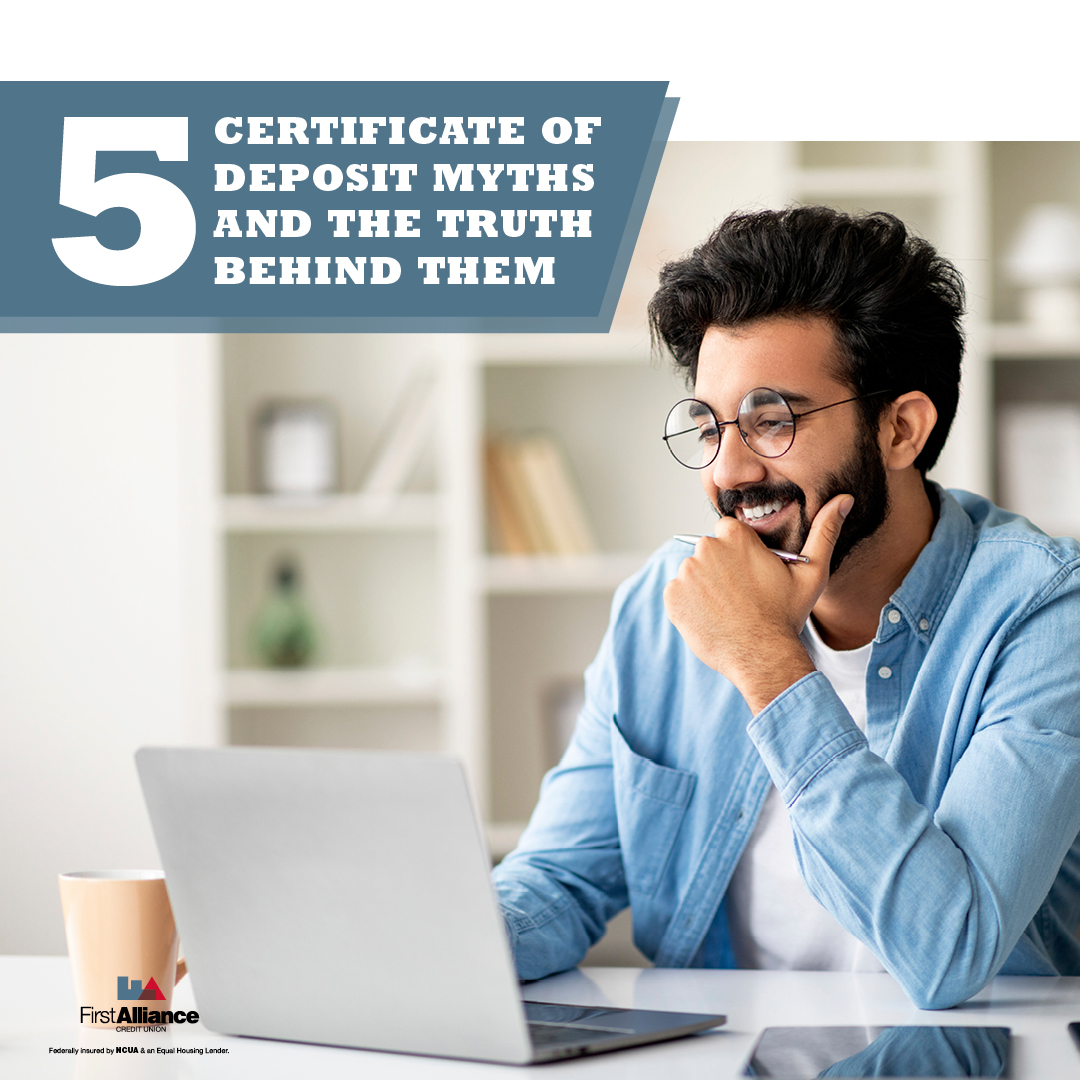Basics of a CD Ladder Strategy
You're probably aware that a certificate of deposit, commonly called a CD, is a type of investment account. You might also be aware of the advantages...
3 min read
 Chris Gottschalk
:
Feb 16, 2023 4:45:00 AM
Chris Gottschalk
:
Feb 16, 2023 4:45:00 AM

When you discover the advantages of CDs, otherwise known as certificates of deposit, you might be tempted to open one immediately. They have higher interest rates than savings accounts, and they only get higher the longer the term of the CD gets. They’re also a safe investment, insured by the FDIC or NCUA, and they are very low-maintenance.
CDs aren’t perfect, though. The main disadvantage of CDs is that once you’ve opened one, you can’t withdraw your money until the CDs term is over, at least not without paying an early withdrawal penalty to do so. That can leave people wondering
Unfortunately, there’s not a one-size-fits-all answer to this question. However, there are some guidelines that will help you determine if a certificate of deposit is the best investment for you.

As previously mentioned, many people don’t like the idea of not being able to access the money in a CD until it matures. If, however, you weren’t planning on using your money during that time anyway, you might not mind it being tied up. In other words, if you’re saving for a financial goal, you can put the money you’ve set aside in a CD and let it earn interest until you need it.
It’s worth pointing out that a financial goal isn’t the only reason you might have money set aside. You might have money you’re not using because:
If you do, you might want to consider investing at least part of these funds in a CD.
The minimum deposit required to open a CD account varies depending on the credit union. However, it is common to see minimum initial deposit requirements ranging from $500 to $1,000. It's important to check with your chosen credit union or other financial institution for their specific requirements.
Investing in stocks and mutual funds might pay off handsomely in the long run, but there is always an element of risk involved. If you’re not comfortable risking your money, a CD is a good option. When you open a CD, you know that your money is guaranteed to get that same interest rate until that CD matures.
Even better, every CD up to $250,000 is insured by the NCUA (for credit unions) and the FDIC (for banks). That means you’ll never have to worry about losing your money in a CD or any other United States bank account.
This predictability can also help with your financial planning. When you put your financial goal money in a CD, you can calculate how much money you’ll get back based on the annual percentage yield (APY) and the CD term.
If you'd like to take advantage of the higher yields you can get from CD rates but still want to have access to your money, you might want to open a CD ladder.
When you open a CD ladder, you open multiple CDs, each with a different maturity date. For instance, you might have 5 CDs set up like this:
This would let you open one or two CDs that have a longer term and a correspondingly higher rate of interest while still giving you access to part of your money every six months.
When your 6-month CD matures, you can either spend it or open another CD with the funds, depending on your needs, and create another "rung" in the CD ladder. You might open up another 2-year CD to get a higher interest payment, or you might open a CD for a shorter length of time if you think you might need that money sooner.
One of the biggest obstacles to saving money is the never-ending stream of temptations. When you put money in a CD, though, you’re ensuring you won’t spend that money, at least not until the CD matures. This is a great way to help you build up your emergency fund, save for your financial goals and make sure you’re spending money on the things that are actually important to you.
Of course, you don’t have to limit the money you put in CDs to money you’ve saved. If you get a windfall and you’re not sure how to use it, for instance, why not put it in a CD to give yourself time to figure out what to do?
A certificate of deposit is an excellent investing tool, but you have to know the best ways to manage the certificate of deposit pros and cons. Since you can’t use the money in a CD until it matures, only use money that you know you won’t be spending, like the funds you’ve saved for a financial goal. You can also put funds in a CD to ensure you won’t spend them, and they’re always a safe investment if you don’t want to risk investing your funds in the stock market.
If you’d like to discover how a CD can help you reach your financial goals, become a member of First Alliance Credit Union today. You can open a CD that lasts anywhere from 6 months to 5 years, and you can keep track of what your CD is earning with our online banking platform or mobile app. You can also open other types of savings accounts, such as a money market account.

You're probably aware that a certificate of deposit, commonly called a CD, is a type of investment account. You might also be aware of the advantages...
-1.png)
When most people hear the words “certificate of deposit,” they think about an investment that keeps your funds locked up for several months, perhaps...

For some reason, certificates of deposit—also known as CDs--seem to have more myths surrounding them than other types of accounts. Maybe it’s because...